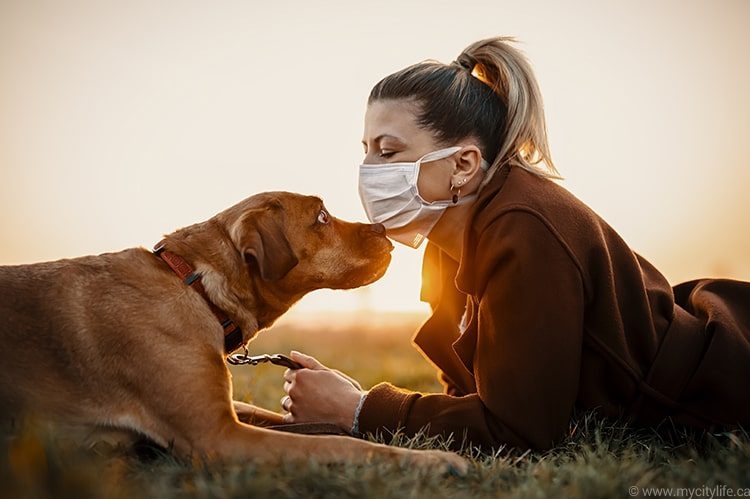What To Do If Your Dog Tests Positive For Covid-19?
It would appear in the age of COVID-19 that neither humans nor animals are safe from being infected with the deadly novel coronavirus. Recently, doctors confirmed the first dog in the United States has tested positive. WRAL-TV in Raleigh, N.C., was the first to report this development, revealing that the dog, a pug named Winston, and his family from Chapel Hill, N.C., all tested positive for the virus, except for the daughter. Dr. Chris Woods, who is the lead investigator of the Molecular and Epidemiological Study of Suspected Infection (MESSI), has confirmed that “to our knowledge, this is the first instance in which the virus has been detected in a dog. Little additional information is known at this time, as we work to learn more about the exposure,” according to an online article published by www.cbsnews.com. The mother of the family, Dr. Heather McLean, is a pediatrician at Duke University. Her family recounted the story to the website www.wral.com. Dr. McLean said their dog was experiencing mild symptoms. “Pugs are a little unusual in that they cough and sneeze in a very strange way. So it almost seems like he was gagging, and there was one day when he didn’t want to eat his breakfast, and if you know pugs, you know they love to eat, so that seemed very unusual.”
Ben McLean, the family’s son, said that “Winston licks all of our dinner plates and sleeps in my mom’s bed, and we’re the ones who put our faces into his face. So, it makes sense that he got (coronavirus).”
The family was part of the MESSI research study on April 1. Dr. McLean, in the online article, recalled that “they all came out to our house and did blood samples. For the humans, they swabbed our noses as well as our mouths, and for the animals, they did oral swabs for both dogs and the cat.” Their other three family pets tested negative for COVID-19.
Dr. McLean’s daughter, Sydney, was the only human family member to test negative for COVID-19. The family’s father, Samuel, works in the emergency room at UNC Hospitals.
As of the end of April 2020, the McLean family and Winston have all recovered from the deadly virus. “This has been very stressful, and we’re grateful we made it through,” Dr. McLean told www.cbsaustin.com.
Jean Shafiroff, an animal activist and ambassador of the American Humane Society, says that had Winston not been tested, he would have survived the ordeal regardless. She also says that there is no evidence that animals can pass the virus on to humans. However, it is clear that human-to-animal transmission is possible. Shafiroff is suggesting that all pet owners review the new guidelines on protecting pets from COVID-19 set by the Centers for Disease Control and Prevention (CDC).
Shafiroff outlines the new regulations: “The CDC is advising that you social distance your dog with other dogs and with people the same way you would social distance yourselves. It’s fine to play with your dog as you normally would inside your home, just be aware when they are outside. The CDC also recommends avoiding dog parks and feels it is necessary to wash your pet if they roll around in the grass or dirt.”
According to an online article published by the Detroit Free Press, Jessica Romine, a doctor of veterinary medicine specialist in small animal internal medicine at Specialty and Emergency Pet Hospital in Southfield, Mich., said that “COVID-19 symptoms in pets closely resemble the well-known symptoms in humans: cough, fever and runny nose. All symptoms are likely to be relatively recognizable and mild.” There are a variety of respiratory diseases that could cause similar symptoms that are more common, which a vet would likely check before testing for the novel coronavirus. If you think your pet is exhibiting symptoms and may have been exposed to COVID-19, let your vet know via a phone call before setting up an appointment and bringing in your pet.


















































































